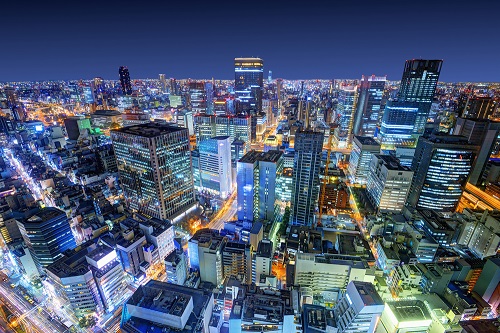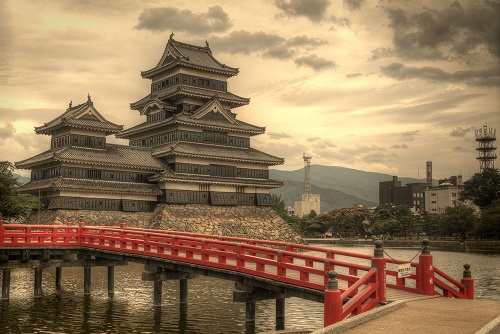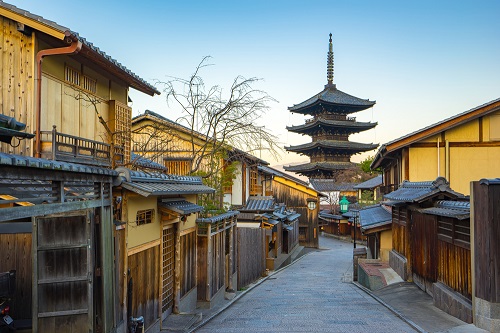If you are living and working in Japan, you will need to sign up with the national health insurance system. This is compulsory and will allow you to access public healthcare. Health insurance in Japan is based on a two-tier system of public and private health insurance.The national scheme is divided into two parts: Employees’ Health Insurance (健康保険 Kenkō-Hoken), which covers employees of private schools, those in medium or large companies, and national and local government employees. There is also the National Health Insurance (国民健康保険 Kokumin-Kenkō-Hoken or NHI) scheme, which covers the self-employed and the unemployed.
As an expat, you will be obliged to sign up for NHI if you are going to be resident in the country for more than a year and if you are not already covered by Employees’ Health Insurance.
How does the Japanese state health insurance system work?
The Japanese national health system is of a high standard, comparable to those of Western nations, and you should have no difficulty in accessing the treatment that you need, whether in the public or the private sector.
Some expats choose to take out private cover with an international insurer, which may include a medical evacuation clause. However, registering with one of the national health insurance schemes is compulsory, so you will end up having both public and private health insurance cover if you go down this route.

As an expat, you will need to register for public health insurance as soon as you arrive in Japan. Your employer should do this automatically, but it is advisable to check that you have been registered. You will need to make monthly contributions, which will be deducted from the payroll if you are signed up with Employees’ Health Insurance. It will be based on your salary.
Coverage for medical costs will vary depending on which scheme you have been registered with, but overall you will need to pay 10%, 20% or 30% of the costs of your healthcare, and the government will cover the remainder. Medical fees are established by a national regulatory committee, and monthly thresholds are set, according to income and age. If your medical fees exceed this threshold, the excess will be reimbursed or waived by the government.
If you are either unemployed or self-employed, and you are eligible for NHI, you will need to register at the local municipal office. Bear in mind that not all government employees speak English, so you may need to arrange for a translator. You will need to present your alien registration card at the residential affairs division at your local city office or ward office. Note that you must also contact the municipal office if you are going back to your home country, moving to another town or city, or changing your name or address.
In order to register, you will need:
• Your passport
• Residence card
• ID card, covering social security (you will need to be issued with this first – check with the Japanese authorities directly)
You will then be sent a health insurance card in the post, which you must bring with you whenever you visit a GP, clinic or prescription pharmacy. It is valid for a year, and you will be sent a new card every year until your residency ends.
You will be able to choose your own primary care provider.
If you are not insured for any reason, you will be liable for 100% of your medical fees, but if your household falls beneath a low-income threshold for receiving a healthcare subsidy, then the government will pay. If you are entitled to NHI, then your dependants will be covered, otherwise you will need to take out private insurance for them.
If you are a retiree under the age of 75, you and your dependants will be covered by NHI. If you are 75 or older, or 65 with a disability, you may also be entitled to sign up with the Long Life Medical Care System (長寿医療制度 Choju Iryo Seido). Premiums for this are income dependent; if you are on a low income, the government will cover 90% of your medical costs, otherwise it will pay the standard 70%.

Accessing private health insurance in Japan
As above, Japan operates on a two-tier system of health insurance. Therefore, you may elect to take out private cover. You will need this, or comprehensive travel insurance, if you are visiting the country for a short time, as you will not be eligible for national health insurance.
Public healthcare is of a high quality, but hospitals can be busy, so some expats choose to use the private sector. The private healthcare system in Japan is sophisticated and has excellent care facilities, so you will have little trouble accessing the treatment that you need. However, note that you may need to pay upfront, as a number of Japanese hospitals do not accept international health insurance directly.
Costs are comparatively inexpensive but can quickly escalate, so if you know that you will be seeking treatment, in a non-emergency situation, then check with both your healthcare provider and your insurance company regarding your personal situation. You may choose to pay out of pocket, which is possible in the primary care sector (whether public or private) and in order to see a specialist. You will not necessarily need a GP’s referral in order to make an appointment with a specialist.
If you need treatment in the emergency room, it is advisable to take cash (around US$100) with you, as you may need to pay upfront and then put in a claim to your insurer.

